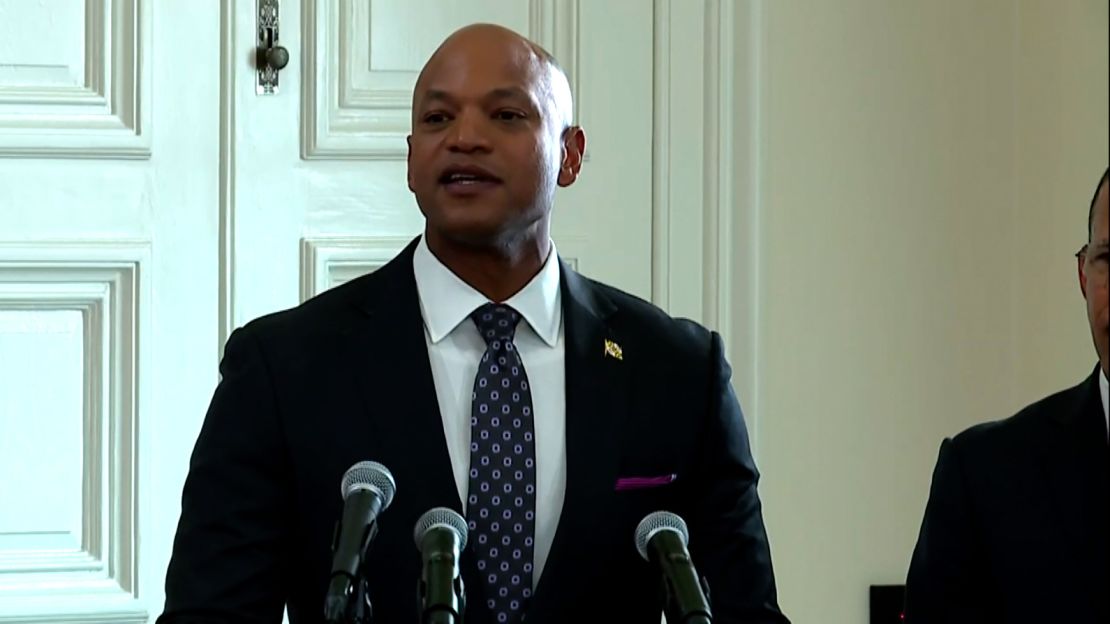Maryland’s governor issued pardons for more than 175,000 marijuana convictions Monday – a significant act of mass clemency that reflects the rapidly changing attitudes toward a drug that an increasing number of Americans want to see legalized.
The pardons by Gov. Wes Moore, a Democrat, will forgive low-level marijuana possession and certain paraphernalia charges for an estimated 100,000 people, the governor’s office said – noting it was possible for a person to have more than one conviction pardoned.
The Washington Post first reported the news.
“This is about changing how both government and society view those who have been walled off from opportunity because of broken and uneven policies,” Moore said at a signing event Monday, almost two years after Maryland voters approved a constitutional amendment legalizing recreational marijuana for people 21 and older.
The governor described his executive order as “the most sweeping state-level pardon” in the country’s history. In an acknowledgement of the disproportionate impact the issue has on Black and brown people, the event coincided this week with Juneteenth, which?commemorates the end of slavery?in the US, The Washington Post reported.
Monday’s order will result in the pardons of more than 150,000 misdemeanor convictions for simple possession of cannabis and more than 18,000 misdemeanor convictions for use or possession with intent to use drug paraphernalia, the governor office said. About 25% of those convictions stem from the city of Baltimore.

The pardons – which will also apply to people who have died, the Post reported – will not result in people being freed from incarceration, the governor’s office said, and it noted Monday’s action was not the same as expungement.
The order signed Monday directs the state Department of Public Safety and Correctional services to devise a way to indicate the pardon on an individual’s criminal record. But those seeking to have their conviction removed from the public record must still petition the courts.
Marylanders approved recreational cannabis for adult use amid a marked change in the way cannabis is viewed by the public: In November 2023, a record 70% of Americans surveyed by Gallup said they supported cannabis legalization. In 2014, the share was 51%.
“We cannot celebrate the benefits of legalization if we do not address the consequences of criminalization,” Moore said, noting that the convictions pardoned Monday meant “a harder time with everything – everything from housing, to employment to education.”
Maryland Attorney General Anthony G. Brown said at Monday’s event there was a “deeply rooted bias in drug related arrests and sentencing,” which he described as a vestige of slavery.
“Cannabis convictions for hundreds of thousands of people here in Maryland were scarlet letters, modern day shackles,” he said. “I can almost hear the clanging of those shackles falling to the floor with your pardon this morning, governor.”
Restrictions easing
Moore’s pardons Monday are just the latest illustration of the waning restrictions around marijuana, which has so far been legalized for adult recreational use in 24 states, two territories and Washington, DC, according to data from the National Conference of State Legislatures. Thirty-eight states allow the medical use of cannabis products.
And while the drug remains illegal federally, there have been signs of change at that level, too.
In April, the US Department of Justice recommended marijuana – designated for more than 50 years as a Schedule I substance – be rescheduled as a Schedule III controlled substance, which would bring its classification in line with prescription drugs such as ketamine and Tylenol with codeine.
Substances classified as Schedule I –?like heroin and ecstasy – are by contrast considered to have no accepted medical use and a high potential for abuse, and they are subject to the strictest of restrictions.
The recommendation followed a US Food and Drug Administration review at the direction of President Joe Biden, who in 2022 had written to the Justice Department supporting marijuana’s reclassification.
State-licensed cannabis dispensaries and retail shops are expected to generate $32.1 billion in sales this year, according to estimates from MJBiz, a cannabis industry trade publication and events organizer.




